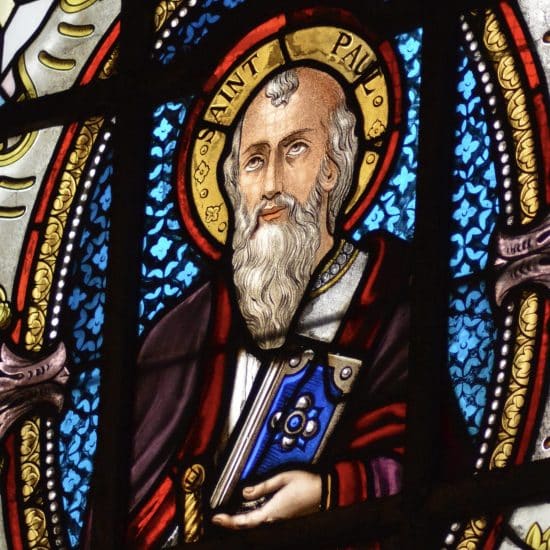 One Spirit
One Spirit
Formations: May 13, 2018
Scripture: 1 Corinthians 12:1-12
 Michael K OlmstedCorinth was a city of diversity and abundance, shaped by international trade, impressive temples, flourishing businesses and even a strong Jewish community. It also had a reputation of immorality, where anything could be bought and the Temple of Aphrodite employed a thousand priestesses who were nothing more than prostitutes! In popular slang of the day, “Corinthian” was interchangeable with slandering a person as immoral.
Michael K OlmstedCorinth was a city of diversity and abundance, shaped by international trade, impressive temples, flourishing businesses and even a strong Jewish community. It also had a reputation of immorality, where anything could be bought and the Temple of Aphrodite employed a thousand priestesses who were nothing more than prostitutes! In popular slang of the day, “Corinthian” was interchangeable with slandering a person as immoral.
But Paul saw beyond the obstacles of that society and spent a year and a half establishing a church in Corinth (Acts 18:1-11). His two letters to that congregation firmly addressed the factions dividing the church, moral decline and disputes over worship practices. Our focus in this study is on the abuse of spiritual gifts that had become more divisive than uplifting. Like the Corinthian believers we sometimes forget that blessings, wisdom and gifts all come from one source, God’s Spirit, so it’s not about us but God (vv. 4-6).
We sometimes need to remind ourselves that the church does not exist as a reflection of the world’s standards and practices. The church, in its thinking, values, leadership, ministries, and internal relationships must define itself by a central commitment to Christ and concern for the lost world. The disunity Paul addresses is emphasized by ranking spiritual gifts by their importance and forgetting they are all “gifts” from God, not emblems of spiritual greatness. In verse four Paul uses the Greek charismata for gifts, a word for “grace” or a gift that cannot be earned or bought. In verse five he refers to these God-given gifts as “services,” something gladly done for others out of compassion. In verse six he uses the word “activities” and repeats it in verse ten, connecting it to “miracles.” Before Paul gets into a careful rejection of the idea that spiritual gifts are special gifts given to the select few, he lays the foundation that authentic spiritual gifts are the result of God’s grace, never signs of individual importance or authority.
The Holy Spirit is the source of all spiritual gifts and the Spirit alone decides when, where and through whom any gifts will appear. I remember in the 1960s and 70s when friends insisted that if I was to be a truly Spirit-led preacher and do the work of God I must experience “baptism of the Holy Spirit” and speak in unknown tongues. When I pointed out this text, they dismissed it as having to do with a misuse of spiritual gifts in an isolated setting. I suggested they look at the context of Paul’s argument and read the text again. Nowhere does Paul suggest these gifts are for every believer. He is clear that God’s Spirit has the primary role in distributing these gifts, clarifying that: 1) God gives each of us the gifts that we need to serve him, 2) the Spirit is the source of all gifts, and 3) spiritual gifts are given to bless and build up the congregation rather than any individual. Keep in mind there is not one comprehensive list of spiritual gifts in the New Testament. You will find a variety in 1 Corinthians 12:28, Romans 12:6, Ephesians 4:11-13, and 1 Peter 4:10-11.
The first two gifts Paul mentions in this text connect with teaching (v. 8). “Wisdom” applies the teachings of God to real-life challenges. “Knowledge” involves straightforward application of spiritual truth to actual situations, such as: should you eat meat that has been sacrificed to a pagan god? There is a connection in the next three gifts: faith (v. 9), healing (v. 9) and working of miracles (v. 10). Jesus healed the blind, cleansed lepers, raised the dead and calmed a storm. Jesus’ disciples also worked miracles.
Paul mentions “signs and wonders and mighty works” (2 Cor.12:12). This concept was common in the early church, but the expectation was not that miracles were common occurrences to be performed by all believers. The gifts of “prophecy” and “discernment” of spirits (v. 10) are also connected. Prophecy is not predicting the future, but confronting the realities of now and applying God’s truth to those situations. Discernment is the result of personal faith in Christ and understanding what it means to live as a Christian in contrast to the world’s thinking. The Corinthian church needed this particular gift of discernment just as we do in our deeply troubled times.
The last of the spiritual gifts Paul mentions, tongues and their interpretation, were the greatest cause of division within the Corinthian church. Those who “spoke in tongues” considered themselves to be more spiritual than those who did not. Worship services were being disrupted. Although it is not mentioned in modern times, such “prayer languages” are found in pagan religions as well. This is why Paul lays down certain restrictions on speaking in tongues in public worship (1 Cor.14:27-28). There is a simple common-sense guideline here: “unknown tongues” do not proclaim the good news of Jesus Christ to the lost world, offer hope to the sick or hungry, build bridges over racial strife or offer prisoners a better life. The Spirit of God works in and through all God’s people to share his grace.
Several times people have asked me, “Are you a charismatic Christian?” The answer is yes, because without God’s Spirit working in my life I cannot truly live for God, teach his word, share his love and see hope beyond the ugliness of this world. Do I speak in “unknown tongues”? No, but I pray and preach in the language of God’s grace and love.
The church at Corinth was divided, but not by outside influences. They were as divided as their city by those who claimed special gifts and standing. Paul kept telling them the Christian life is not defined by our differences or our society, but by the grace of God. Before God we all stand on equal ground, in need of his love and forgiveness. “No one can say ‘Jesus is Lord’ except by the Holy Spirit” (v. 4). May all who name the name of Christ put all else aside as we serve him in “one Spirit.”
Retired after almost 50 years in pastoral ministry, Michael K. Olmsted enjoys family, supply preaching and interim work, literature, history, the arts and antiques.
Formations is a curriculum series from Smyth & Helwys Publishing, Inc. through NextSunday Resources.
The PDF download requires the free Acrobat Reader program. It can be downloaded and installed at https://get.adobe.com/reader (uncheck optional offers first)



